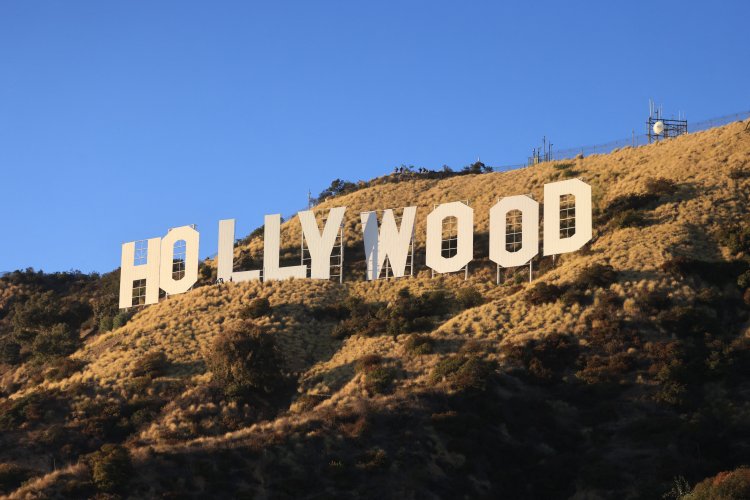Lights, camera, hesitation? Trump's film tariff perplexes Hollywood
California officials and film industry representatives acknowledge that Hollywood is facing significant challenges. However, they are uncertain whether the president's most recent proposal would be beneficial.

Instead of provoking the anticipated backlash from an industry dominated by Democrats, Trump's announcement was met with confusion.
“If the President announces a proposal with more details,” Gov. Gavin Newsom stated, “we will review it.”
Rep. Laura Friedman, a Democrat from Hollywood and former film producer, questioned the feasibility of Trump's plan, wondering how it would be implemented, particularly in cases where filming occurs in multiple locations. She suggested that a national film tax credit would offer a more straightforward and effective solution to prevent the decline of a crucial industry.
“Fundamentally, how does this tariff work?” Friedman asked in an interview. “A film is not something you can tariff like it’s a crate. Do you tariff the entire production of the film?”
Details about the proposal were not provided by the White House on Monday. An anonymous administration official indicated that the Commerce Department is “figuring it out” and would likely release a study. Trump himself sidestepped a question regarding the specifics of the tariff, instead criticizing Newsom as “grossly incompetent” for letting the industry “be taken away from Hollywood.”
Hollywood's challenges are significant and ongoing. Film production has gradually shifted from Los Angeles as other states and countries attract filmmakers with tax breaks and lower expenses.
According to a survey by FilmLA, an organization that collaborates with local government, film production in the Los Angeles area dropped by 25% from 2018 to 2023, as places like the U.K. and New York expanded their studio offerings.
In response, Newsom proposed to more than double California's existing film tax credit, but many local Democrats expressed concern about Trump's announcement given his known animosity toward the state and contentious relationship with Hollywood.
Assemblymember Rick Zbur remarked that Trump’s existing tariffs, which California is challenging in court, “are harming American consumers.” Sen. Adam Schiff also noted that a federal film tax incentive would be preferable to tariffs, which could yield “unintended and potentially damaging impacts.”
“President Trump has a deep disdain for California and has not been shy about trying to hurt us in every possible way that he can,” asserted Assemblymember Isaac Bryan, a Los Angeles Democrat, who argued that the president’s proposal is “not in our best interest.”
“Immediately, a number of entertainment producers and film critics and folks who are active in the industry were quite a bit mortified,” Bryan added, referring to the initial reaction. He expressed disbelief over this approach, especially given California's efforts to sustain and preserve the industry.
The issue quickly gained traction in California's gubernatorial race as several Democratic candidates criticized Trump's move. Former Los Angeles Mayor Antonio Villaraigosa termed it a “reckless” strategy that would backfire, while former Health and Human Services Secretary Xavier Becerra questioned in an interview, “Did he think that through? Did he think anything through?”
In a manner akin to Trump’s inconsistent tariffs on foreign trade partners, his announcement has left the entertainment sector in a state of uncertainty. Experts expressed confusion over the potential logistics of his tariffs.
Duncan Crabtree-Ireland, head of the SAG-AFTRA union, stated that the union is awaiting further specifics. A representative from the California Film Commission referenced Newsom’s statement, while a FilmLA spokesperson declined to comment.
Although the Motion Picture Association, which represents the largest studios, did not comment on Trump's pronouncement, it highlighted that the U.S. film and television industry achieved a $15.3 billion trade surplus in 2023 and maintained a positive trade balance across all major global markets.
This situation is not entirely new; back in 2001, a coalition of labor organizations sought an investigation by the International Trade Commission into potential tariffs on Canadian film and TV productions due to Canadian subsidies impacting the U.S. industry. The request was withdrawn before a determination was made, and a subsequent petition in 2007 regarding Canadian subsidies was quickly rejected.
Now, Trump is once again issuing a warning to foreign film industries. Laurence Farreng, a member of the European Parliament from the Renew party, commented that “Americans will be the ones paying the bill.”
“I will be present at Cannes,” Farreng noted, referring to the prestigious film festival that attracts major figures from the film industry each summer in France. “I believe that this subject will keep the producers very busy.”
Megan Messerly, Caitlin Oprysko, and Giorgio Leali contributed reporting.
James del Carmen for TROIB News
Find more stories on Business, Economy and Finance in TROIB business












